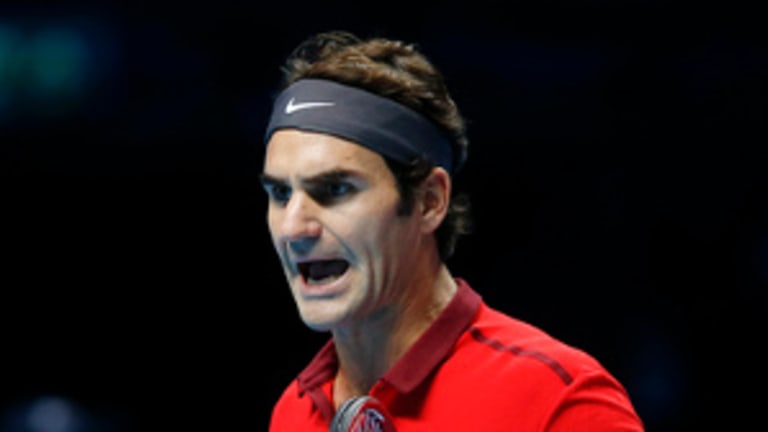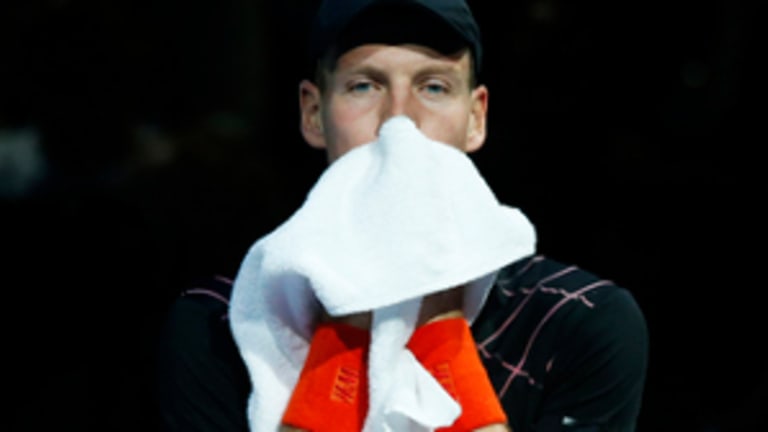We know British audiences don’t like to be rude, but the hopeful clapping from the crowds at the O2 Arena in London so far has been above and beyond the call of politeness. Granted, the World Tour Finals is a risky ticket: You get one doubles match, with a super-tiebreaker instead of a third set, and one two-out-of-three-set singles match for your money. Over the first two days, fans have not been rewarded for their risk. There have been four singles matches, five 6-1 sets, no suspense, and a consistently awful level of play from the losers. At times, watching the world’s best shank routine ground strokes 10 feet out, I’ve started to wonder if there were an unseen hurricane blowing through the O2.
What, if anything, can we take away from the World Tour Finals so far? There hasn’t been an overriding reason for the poor play. Andy Murray, who lost to Kei Nishikori for the first time in four matches, looked nervous. Tomas Berdych, who lost 6-1, 6-1 to Stan Wawrinka, looked out of sorts. He said later that he couldn’t get comfortable on the court, and that this was his worst match of 2014; for a second it appeared as if he might begin to cry as he walked off. Marin Cilic, who lost to Novak Djokovic 6-1, 6-1, looked like the Marin Cilic of old: i.e., too inconsistent and indecisive to be a top-tier player. As for Milos Raonic, who lost to Roger Federer 6-1, 7-6 (0), he walked around in a daze after getting broken in his opening service game.
Here are a few other quick observations from across the pond, before we hopefully move on to better things.

